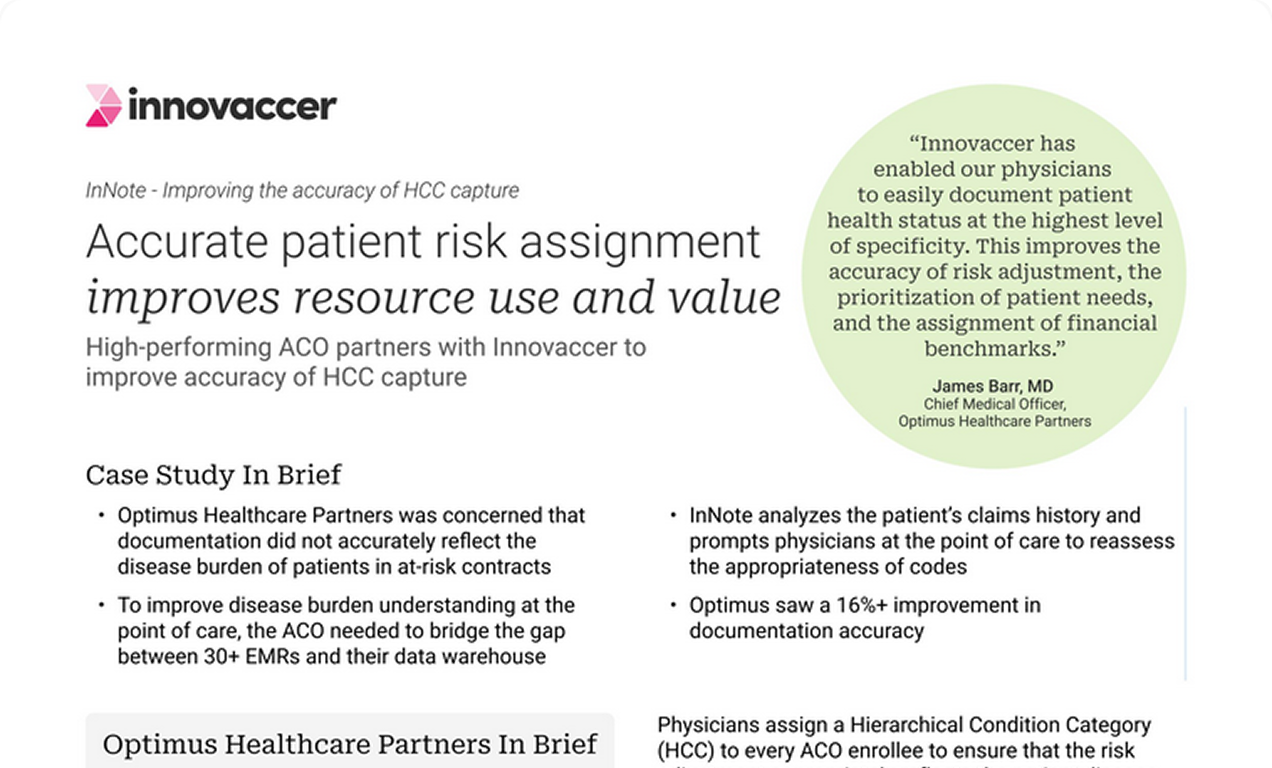The Future of an Accountable Data-Driven Care

Although the value-based care train has gained momentum ever since its onset, it’s a long way to the destination. There are a lot of stops along the way, from uprooting the fee-for-service model to comprehensive population health management. These ideas of value-based care and population health management can feel like complex notions, but the advancements in health IT and the work of healthcare organizations- especially accountable care organizations- have attested that big data and analytics are holding true on their promise to drive tangible improvements in care.
The ACOs all over the U.S., especially, have become a significant part of the healthcare landscape- covering more than 32 million lives across every state. A survey, conducted in collaboration with the National Association of ACOs (NAACOS) at the NAACOS Fall 2017 Conference provided some really interesting insights into the current and the future state of the ACO industry and how they plan to take on value-based care. More than 650 ACO leaders attended the NAACOS Fall Conference in Washington D.C. and engaged eagerly in the glimpse of the future of accountable, value-based care.
The state of accountable care as of 2017
The good part- a large number of ACOs are looking forward to participating in a risk-based contract, 47% of them plan to be a part of a risk-based shared savings model and 38% plan for capitation. The bad part- care management strategies are mostly unchanged. So apparently, the future is likely to include more financial responsibility for clinical outcomes, but ACOs are still figuring out the ‘how’ of population health management.
Chronic care management and comprehensive care coordination are also a priority for ACOs. More than half of them already have a working strategy around chronic care management, and an additional one-third of them have implemented a post-acute care coordination strategy, and several others are following suit. Almost 90% of ACOs believe care coordinators are the “cornerstone” and integral to their efforts in improving care, calling them a “glue connect[ing] a disjointed care delivery system.”
Moreover, to ensure they receive significant bonuses and be instrumental in reducing the cost of care, ACOs are implementing strong population health management strategies to reduce gaps in care, track patient health across the care continuum and avoid sudden episodes. However, only 20% of the respondents could affirm to physician-directed medication adherence programs already in place.
How has health information technology been instrumental?
The silver lining, however, is that ACOs are largely embracing technology. The care operations have been largely supported by a number of health IT tools like analytics, HIEs, automated reminders, etc. ACOs reported a spending of about $600,000 on health IT, analytics, and reporting. However, this number is low as compared to the average investment of $1.1 million on care management- implying that ACOs have room to grow when it comes to health IT adoption.
80% of ACOs have some form of population health analytics and while 60% are connected to either a regional or a state HIE, only a mere 40% have electronic reconciliation capabilities. Enhanced data analytics and quality reporting too were a priority for ACOs, to help them better manage chronic diseases, coordinate care and bridge the gaps and variations. Overall, ACOs in the U.S. seem to be relatively well-equipped with health IT tools that would assist them in meeting their primary goals.
Engaging patients and improving the patient experience of care
Several respondents also reported using a number of different patient portal technologies and automated processes to ensure patients remain engaged, even post-episode. Many ACOs rely on care coordinators who could help providers oversee post-discharge and post-acute care follow-ups, placing reminders, and are investing in improving patient support in care plans and agree that health IT will only enhance outreach.
Speaking on behalf of Mercy ACO, one of the largest in the Midwest U.S., Derek Novak too emphasized on the need to leverage technology to engage patients better. The Div. Director of Operations at Mercy ACO engaged in a panel discussion at NAACOS, centered around working with technology to improve patient engagement, and reaffirmed how technology can reduce the geographical distance between patients and their providers, help providers keep a better track of patient health and empower them by bringing them onboard care operations.
The future of accountable, value-based care
Value-based care in the U.S. has grown by leaps and bounds ever since it was introduced and ACOs have been instrumental in that outcome. As of today, for the ACOs, at the top of the priority list is cutting costs, which coincidentally also is one of the greatest challenges. There are going to be continued opportunities for ACOs to achieve their stated benchmark goals, improve the quality of care and reduce the cost of care but health IT is instrumental.
ACOs need a smart health IT solution, that is less of a tool and more of a system and enables smart data-driven improvements in the care continuum. The Care Intelligence Systemᵀᴹ, which Innovaccer exhibited at the conference, is a holistic care platform that leverages machine learning to streamline workflows and offer intelligent care management strategies, thus easing the transition to value-based care for ACOs. The Care Intelligence Systemᵀᴹ, allows healthcare organizations to engage with patients, update information in real time, and aligns itself with the goal of making healthcare quality-centric.
NAACOS Fall 2017 reflected the ongoing transformations in the healthcare industry and how ACOs are faring on the road to value-based care. In the coming future, there are going to be a lot of new delivery changes and several attempts at optimization but ACOs will be a significant driver in the transformation necessary to achieve the destination that is value-based care.
For more updates, Subscribe
If you want to see our efforts in the area, Schedule a quick demo


.png)






.avif)









.svg)
.svg)

.svg)

